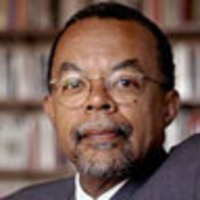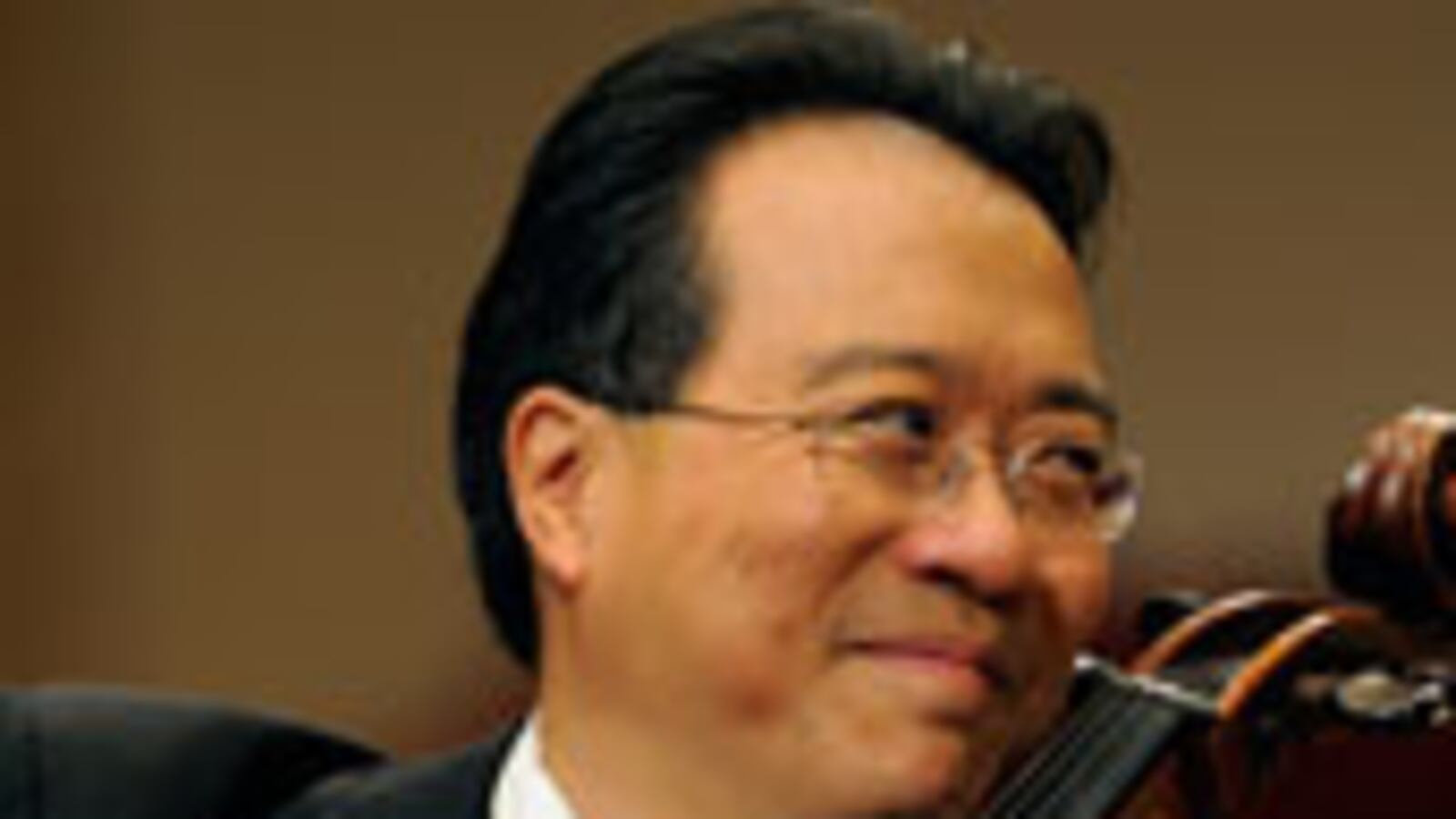
Yo-Yo Ma has always wondered about his name.
"There's a Chinese tradition that all the siblings from one generation share one character in their names in common, or one syllable," the celebrated cellist explained in an interview for my new PBS documentary series, Faces of America. "And so for my generation, there was Yo"—which means "friendly" in Chinese.
"My sister's name is Ma Yo Chang. ... Either my parents had a sick sense of humor or they—because they did know that Yo-Yo was the name of a toy—either they had no more ideas, and they just said okay, 'Yo-Yo.' But that ended up being my name."
Yo-Yo Ma's cousin knew that if he failed to destroy the Ma family genealogy, he would risk being imprisoned, or even beaten to death.
What Yo-Yo Ma didn't know until recently was that the story of his name is actually much more complex, dating back 255 years. In the year 1755 A.D., during the Qing Dynasty, Ma's fourth great grand-uncle, Ji Cang (Jee Ts-ang), decided to dedicate himself to compiling the family stories of his male ancestors. He also decided to send messages to the future, dictating the generational names for 60 generations of Mas yet to come. According to tradition, the clan genealogy that Ji Cang created was to be updated by the male head of the Ma family every 30 years.
But about 40 years ago, during the Cultural Revolution, Ma Yo-De, a distant cousin of Yo-Yo Ma, faced a serious dilemma. The Red Guards, acting on Mao's decree that certain factions in the Communist Party were counter-revolutionaries seeking to revert to capitalist or feudalist ways, were engaging in a campaign to destroy the "Four Olds:" old culture, old customs, old habits, and old philosophies.
Ma Yo De knew that if he failed to destroy the Ma family genealogy, he would risk being hauled in front of his townsmen and publicly humiliated, imprisoned, or even beaten to death. Yet to destroy the precious book would be to obliterate centuries of information about the Ma family line.
Ma Yo-De decided upon a compromise. After tense discussions with his father, the Ma family head, the two decided to hide the four-volume genealogy in a wall in their home on Ma Street in the village of Hou Ma. They fooled the Red Guard, and fooled themselves into believing they had forgotten about it.
But during the 1980s or 1990s—the exact date is unknown—Ma Yo De decided to renovate his home, as did many peasants as China's economy modernized. When Ma Yo De tore down a wall, he was astonished to discover the four volume clan genealogy that he and his father had tucked away for safe-keeping. The volumes had so much water damage that he assumed they were ruined. He started to throw them away, but says something stopped him: respect for his father's memory, respect for his ancestors, a sense that it was valuable in spite of its condition. So he put the whole mess in a box and ritually placed it in the Ma Family Hall located in the middle of the tiny village of Hou Ma. It remained there until our documentary research crew—led by Professor Wang Chung Guang—recovered it, and brought a copy of the book to the United States.
Although water damage would have completely destroyed volumes made of paper, bamboo can actually be boiled and brought back to life. While about half of the genealogy is damaged and awaits restoration, the other half can be read. One of those volumes includes Yo-Yo's father's name.
Yo-Yo had never heard of Ji Cang or any of the ancestors whose lives are chronicled in the genealogy. (Only men are named; women are referred to only as "female.") "All your life, you are always searching for unknowns," Ma said, upon seeing the genealogy for the first time last summer in Lenox, Massachusetts, where he was playing at the Tanglewood Festival. "I feel like I'm in the middle of a Dickens novel: 'Here are the papers…!'"
The genealogy goes back in an unbroken line to Yo-Yo's 13th great grandfather, Ma Lin Guan, who was born in the Ming Dynasty in 1435, 57 years before Columbus discovered the New World. The genealogy describes this Ma patriarch: "Our ancestor disdained the city with its noisy bustle and like the solitude of the countryside. Living an upright life and without holding an official post, he accumulated virtue and cultivated goodness. And thus he lay the foundations for the family for ten thousand generations to come, whether the descendants might labor in the fields, study, fish, or chop wood. To pass on good fortune to the descendants—isn't that what it's all about? Isn't it?"
"That's the best, that's the best we can do as parents," Yo-Yo said of his ancestor's advice. "It's not passing wealth...but passing you know, certain values, in this case, virtue and good fortune."
Writing in the middle of the 18th century, Ji Cang mandated the generational names for all of his descendants, including "Yo" for the generation born in the middle of the 20th century, and for 30 generations after that. Yo-Yo's son and daughter, as he was instructed by his father upon their birth, bear the name Bing, as directed in the family genealogy. "Bing" means "righteous; holding justice."
Henry Louis Gates, Jr. is a literary critic, educator, scholar, writer, editor and public intellectual. He was the first African American to receive the Andrew W. Mellon Foundation Fellowship. In 2002, Gates was selected to give the Jefferson Lecture, in recognition of his "distinguished intellectual achievement in the humanities." The lecture resulted in his 2003 book, The Trials of Phillis Wheatley.






